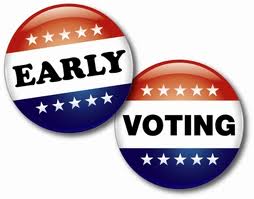I’m just going to quote this bit from this story about how the Senate campaigns are interpreting the early vote turnout so far.
Derek Ryan, a GOP data consultant who previously worked for the state party, said there are a couple metrics among the 15 counties that could be heartening each candidate. In Ryan’s analysis, Republican primary voters currently have a 90,000-vote advantage over their Democratic counterparts in early voting — a margin that is “definitely going to help Cruz out considerably,” Ryan said.
O’Rourke, meanwhile, could be boosted by early voters who have not voted in a general or primary election over the last eight years — currently 8.5 percent versus 5 percent for the entire 2014 period, according to Ryan’s analysis.
“The campaigns are seeing the same numbers that we are,” Ryan said. “Cruz is probably focusing on these primary voters. Beto’s probably optimistic about the ones that don’t have any primary election history.”
Two additional pieces of context to add here. One is that it’s always helpful to have a point of comparison. What kind of primary voter advantage did Republicans (presumably) have in 2014? My guess is that it was greater than it is now, but it would be nice to know that. We can also tell a bit more about those people with no primary history; I’m sure Derek Ryan knows that, he may just not want to do that kind of analysis in public. There’s also the question of when each party’s voters tend to come out. In Harris County at least, the first five days tend to be Republican, the weekend belongs to the Democrats, then the last five days generally trend in the Dems’ direction from the baseline of the first week. From what I know, this pattern has held true so far, at a higher Democratic level than in 2014. Whether that will continue in this highly atypical year is anyone’s guess.
Anyway. Here are the totals for Sunday, and here are the daily totals from 2010, from 2014, and from 2016, as well as a spreadsheet with totals from 2004, 2008, 2012, and 2016. The running tallies:
Year Mail Early Total
==============================
2010 40,553 181,084 221,637
2014 57,546 137,137 194,683
2018 77,347 429,009 506,356
2008 45,361 314,252 359,613
2012 53,131 362,827 415,958
2016 80,681 486,060 566,741
We are now well past the cumulative EV total for 2010. I expect we’ll exceed the 2008 and 2012 totals by the end of the week; if past patterns hold and the final day or two of early voting have the highest individual day totals, we could exceed 2012 by a lot, and maybe approach 2016. Historic patterns have held for the first week, so I’d say the odds are they’ll hold for the second week. We’ll know soon enough.


I voted on the first day at Bayland, like many of the people that were in line I am over 65, thus retired. Those were work hours Mon – Fri. But I, also saw, a lot more young people and Spanish speakers than I normally do. I don’t know about Texas but here in Harris County the Democrats will carry the day.
I keep reading how the voters are just like 2014 (Midterm election). That is plain stupid when the turnout is more than twice what we had in 2014. That thinking is the Republicans wanting to keep HOPE alive.
Yeah Manny, I agree with Kuff’s analysis. I also agree with you hear. I am looking forward to election night to see what happens. I know you will disagree with me when I say that President Trump is good for voting. Everyone seems to be showing up for the party.
Yes he is good for voting, but the Republican Judge that was outside the early voting site was not too happy with all the voting.
Paul, wait till 2020, many state wide Republicans will lose.
Derek Ryan has the breakdown on who is voting (through this weekend) and comparing it to 2014. New voters and voters who don’t participate in primaries are up from 2014.
https://twitter.com/longhornderek/status/1057050049367158784